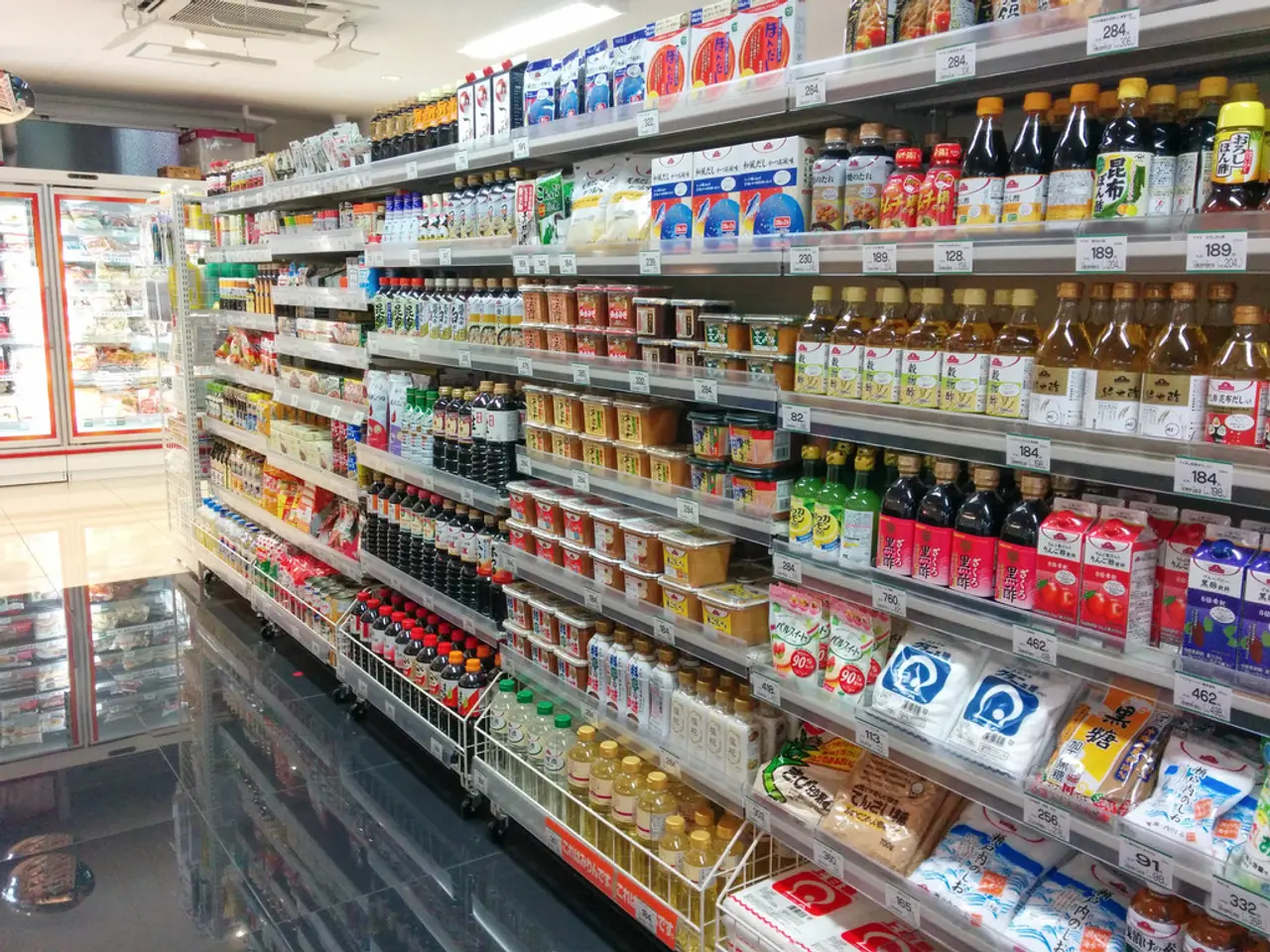Trump announces potential 30% tariffs from August; EU persists in seeking discussion - Trump proposes imposing 30% tariffs starting from August; EU engages in further discussions
In a developing trade saga, the European Union (EU) and the United States are locked in negotiations to avoid a potential tariff dispute, with both sides preparing contingency measures in case talks fail [1][2].
The EU Commission has launched a public consultation on potential countermeasures, considering additional import duties on a broad range of items such as aircraft, automobiles, medical devices, IT equipment, and industrial machinery, covering around €95 billion in U.S. imports [1]. The EU is also considering restrictions on exports, including scrap metals and chemicals worth about €4.5 billion [1].
The U.S. Department of Commerce and Customs and Border Protection have issued procedural updates on tariff implementation and refund procedures related to Section 232 tariffs on steel and aluminum, which could affect ongoing tariff application and enforcement [1].
As of July 1, 2025, negotiations are continuing after a new U.S. trade proposal was made. The EU is actively preparing contingency plans, but no final agreement has been reported yet [2].
The tariff dispute between the EU and US has raised concerns among industries, particularly in Germany, where importers of steel and aluminum products face a 50% surcharge [3]. The German Federal Minister of Economics, Katherina Reiche, has called for quick solutions to avoid escalation [3].
The French President, Emmanuel Macron, has expressed strong disapproval of the tariff threat and called for the EU Commission to vigorously defend European interests [4]. Similarly, the Mexican President, Claudia Sheinbaum, has expressed confidence that an agreement can still be reached with the US government [5].
Meanwhile, Trump has announced a 30% tariff on EU imports, effective from August, citing cross-border drug smuggling as the reason for the tariff on Mexican imports [6][7]. However, the US initially announced a 25% tariff for Mexican imports, but later extended the deadline to August 1st [8]. Trump has also announced a 35% tariff for Canadian imports [9].
The EU Commission is ready to work towards an agreement until August 1, emphasizing the importance of dialogue to avoid the tariffs [10]. The French Minister of Trade, Laurent Saint-Martin, will support the EU Commission's negotiations with his counterparts from Monday [11].
A trade conflict between the EU and US could harm economic recovery, innovation, and trust in international cooperation [2]. Both sides are simultaneously preparing for the possibility that negotiations may not resolve the tariff dispute before the announced implementation dates, indicating a tense and uncertain trade environment between the EU and the US at this time [1][2].
Sources: [1] European Commission (2025). European Commission launches public consultation on potential countermeasures to U.S. tariffs. [2] Reuters (2025). EU and US still locked in tariff talks, both preparing for possible escalation. [3] Deutsche Welle (2025). German industry worried about U.S. steel and aluminum tariffs. [4] France 24 (2025). Macron calls for EU Commission to defend European interests against U.S. tariffs. [5] Mexico Daily News (2025). Sheinbaum expresses confidence in reaching an agreement with US government. [6] CNN (2025). Trump announces 30% tariff on EU imports. [7] BBC News (2025). Trump threatens 30% tariff on EU imports over drug smuggling. [8] CNBC (2025). US extends deadline for tariffs on Mexican imports. [9] CBC News (2025). Trump announces 35% tariff on Canadian imports. [10] European Commission (2025). EU Commission ready to work towards an agreement until August 1. [11] France 24 (2025). French Minister of Trade to support EU Commission's negotiations with U.S. counterparts.
- The tension in the ongoing tariff dispute between EC countries and the United States has raised concerns across various industries, finance, and politics, as potential countermeasures in the free movement of goods could impact the business landscape and general-news.
- Due to the proposed tariffs, sectors such as automobile, medical device, IT equipment, and industrial machinery manufacturers in EC countries may be significantly affected, potentially leading to a slowdown in economic recovery and innovation.
- Leaders in key European countries like Germany and France have urged for decisive actions to resolve the tariff dispute and maintain trust in international cooperation, ensuring the freedom to provide services without disruption and keeping trade negotiations in the realm of politics, not finance.




